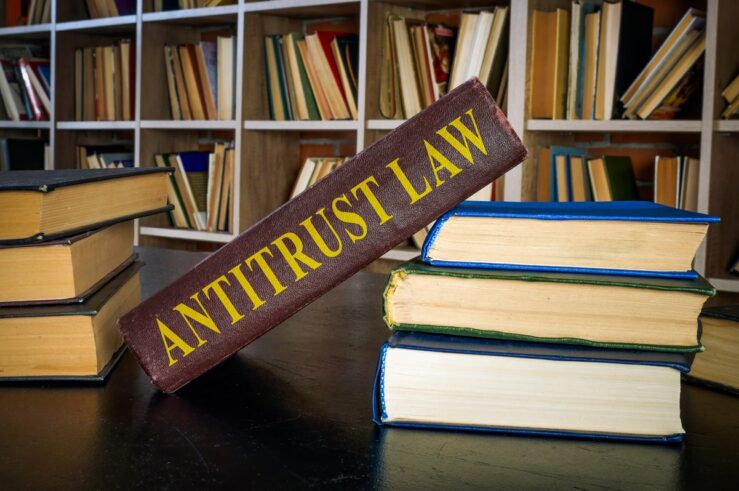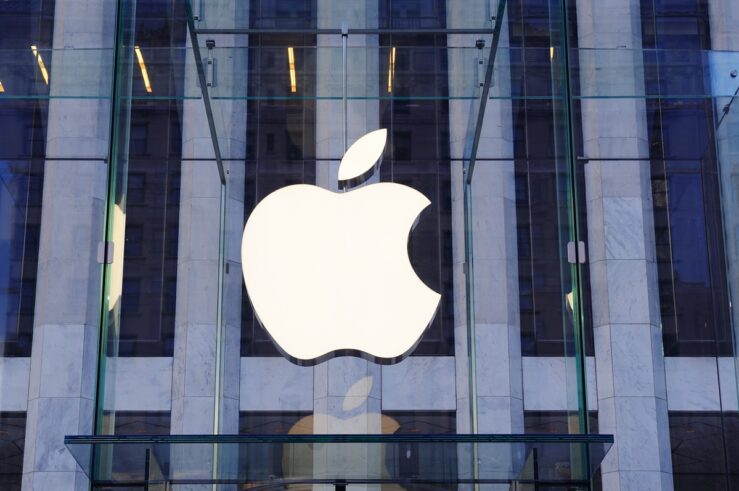Showing archive for: “Exclusionary Conduct”
DOJ’s Not-so-Modest Proposal
The U.S. Justice Department (DOJ) late last month filed its much-anticipated initial proposed final judgment in the Google Search antitrust case. The proposal—to use a bit of baseball parlance—swung for the fences. Maybe they’ll get a hit, or maybe even a home run. Or not. Dodgers superstar Shohei Ohtani hit a whopping 54 home runs ... DOJ’s Not-so-Modest Proposal
Clarifying Antitrust Law by Straightening Teeth
More than a century ago, the U.S. Supreme Court held that the Sherman Act does not interfere with the “unquestioned right to stop dealing,” but the legacy of the Aspen Skiing is that terminating voluntary cooperation with a rival can give rise to liability. A case now on appeal could determine whether the “right to ... Clarifying Antitrust Law by Straightening Teeth
A Primer (and Some Questions) About the RealPage Antitrust Case
The U.S. Justice Department (DOJ) and several states filed suit late last month against the property-management software firm RealPage Inc. for its “unlawful scheme to decrease competition among landlords in apartment pricing and to monopolize the market for commercial revenue management software that landlords use to price apartments.” While this is not the first case ... A Primer (and Some Questions) About the RealPage Antitrust Case
Some Thoughts on the Google Decision, for Those Who Haven’t ‘Binged’ It Yet
Readers of Truth on the Market are no doubt aware of Judge Amit Mehta’s Aug. 5 decision in the Google search antitrust case—that is, his 286-page memorandum and order finding Google liable for violating Section 2 of the Sherman Act (specifically, illegal monopoly maintenance in two markets: general search services and general text advertising). Comments ... Some Thoughts on the Google Decision, for Those Who Haven’t ‘Binged’ It Yet
Europe’s Latest Antitrust Policy Pronouncement Threatens Innovation
A newly released draft of the European Union’s proposed monopolization guidelines suggest they could pose a new threat to innovative business practices that promote high-tech economic growth. The EU should scrap the draft and U.S. antitrust enforcers should likewise reject its approach. Overregulation Harms EU Economic Growth and Innovation The United States, not Europe, has ... Europe’s Latest Antitrust Policy Pronouncement Threatens Innovation
Judge Mehta Got It Wrong in the Google Case
U.S. District Court Judge Amit Mehta ruled in an Aug. 5 order that Google violated antitrust law by improperly maintaining a monopoly. The case focused on “general search engines” (GSEs) used for internet search, and the impropriety was the manner through which Google secured distribution in partnering with internet-browser developers, mobile-device manufacturers, and wireless carriers. ... Judge Mehta Got It Wrong in the Google Case
The Missing Element in the Google Case
Through laudable competition on the merits, Google achieved a usage share of nearly 90% in “general search services.” About a decade later, the government alleged that Google had maintained its dominant share through exclusionary practices violating Section 2 of the Sherman Antitrust Act. The case was tried in U.S. District Court in Washington, D.C. last ... The Missing Element in the Google Case
US v. Apple Lawsuit Has Big Implications for Competition and Innovation
The lawsuit filed yesterday by the U.S. Justice Department (DOJ) against Apple for monopolization of the U.S. smartphone market (joined by 15 states and the District of Columbia) has big implications for American competition and innovation. At the heart of the complaint is the DOJ’s assertion that: [Apple’s] anticompetitive acts include, but are not limited ... US v. Apple Lawsuit Has Big Implications for Competition and Innovation
Apple Fined at the 11th Hour Before the DMA Enters into Force
Just days before the EU’s Digital Markets Act (DMA) was set to enter into force, the European Commission hit Apple—one of the six designated “gatekeepers” to which the new law will apply—with a hefty €1.8 billion fine for the kinds of anti-steering provisions that will be banned by the DMA, which enters into force on ... Apple Fined at the 11th Hour Before the DMA Enters into Force
The Conundrum of Out-of-Market Effects in Merger Enforcement
Section 7 of the Clayton Act prohibits mergers that harm competition in “in any line” of commerce. And, indeed, the Supreme Court’s decisions in Philadelphia National Bank and Topco are often cited on behalf of the proposition that this means any single cognizable market, and that anticompetitive effects in one market cannot be offset by ... The Conundrum of Out-of-Market Effects in Merger Enforcement
The View from Turkey: A TOTM Q&A with Kerem Cem Sanli
How did you come to be interested in the regulation of digital markets? I am a full-time professor in competition law at Bilgi University in Istanbul. I first became interested in the application of competition law in digital markets when a PhD student of mine, Cihan Dogan, wrote his PhD thesis on the topic in ... The View from Turkey: A TOTM Q&A with Kerem Cem Sanli
Shining the Light of Economics on the Google Case
The U.S. Justice Department has presented its evidence in the antitrust case alleging that Google unlawfully maintained a monopoly over “general search services” by “lock[ing] up distribution channels” through “exclusionary agreements” with makers and marketers of devices. Google’s agreements with Apple, for example, have made its search engine the default in Apple’s Safari browser. The ... Shining the Light of Economics on the Google Case
















